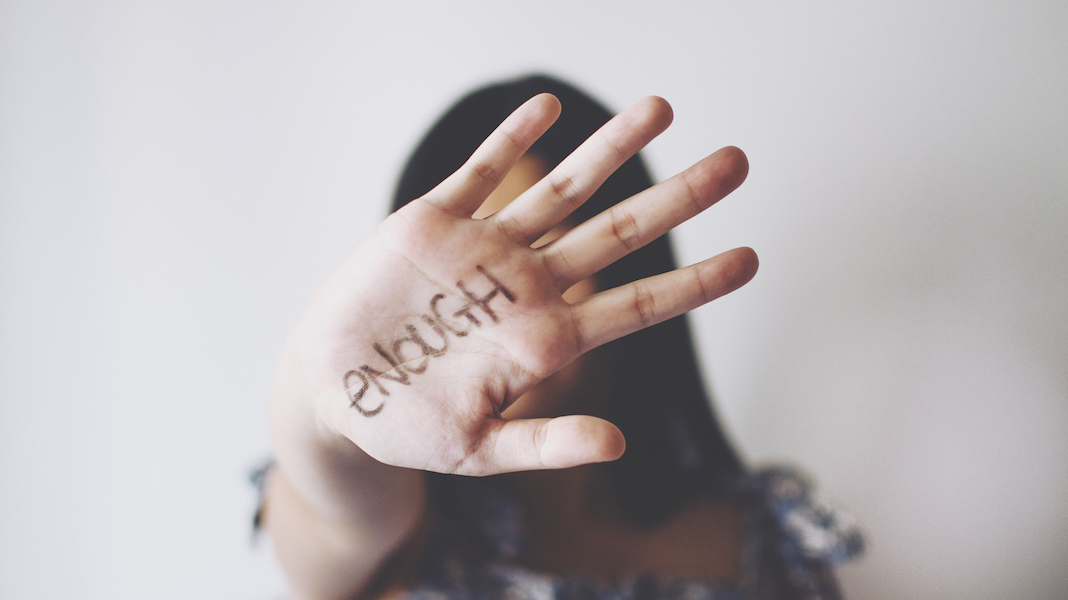
Gettyimages.com/domestic violence
Did you know that we’ve lost more American women to domestic violence than we have troops to war? That is a terrifying fact. But it’s important, especially during National Domestic Violence Awareness Month, to face these facts. If you suspect that a woman you know is a victim of domestic violence, it can be very difficult to know what to do. Often, the victim is not only physically dominated by her partner, but also emotionally and mentally. She can be brainwashed into believing that she deserves the abuse. Or, even if she doesn’t believe that, her partner can convince her that she should forgive him, over and over again. Meanwhile, you worry that asking her if she is being abused could drive her away from you, for fear of getting into more trouble with her partner. It’s such a fragile situation, but it is not beyond help. Here are signs your friend is a victim of domestic abuse, and what you can do.

Gettyimages.com/Uncertain African American woman talking on cell phone
She goes MIA for days
If a woman is hiding physical evidence of domestic abuse, she might go MIA for days or weeks at a time. At one moment she can be eager to see you and make plans, and the next she may stop responding to calls entirely. If you suspect abuse is at play, do not get angry with your friend for what feels like flaking. When she returns, and calls again, it’s important that she knows her network is still there.









